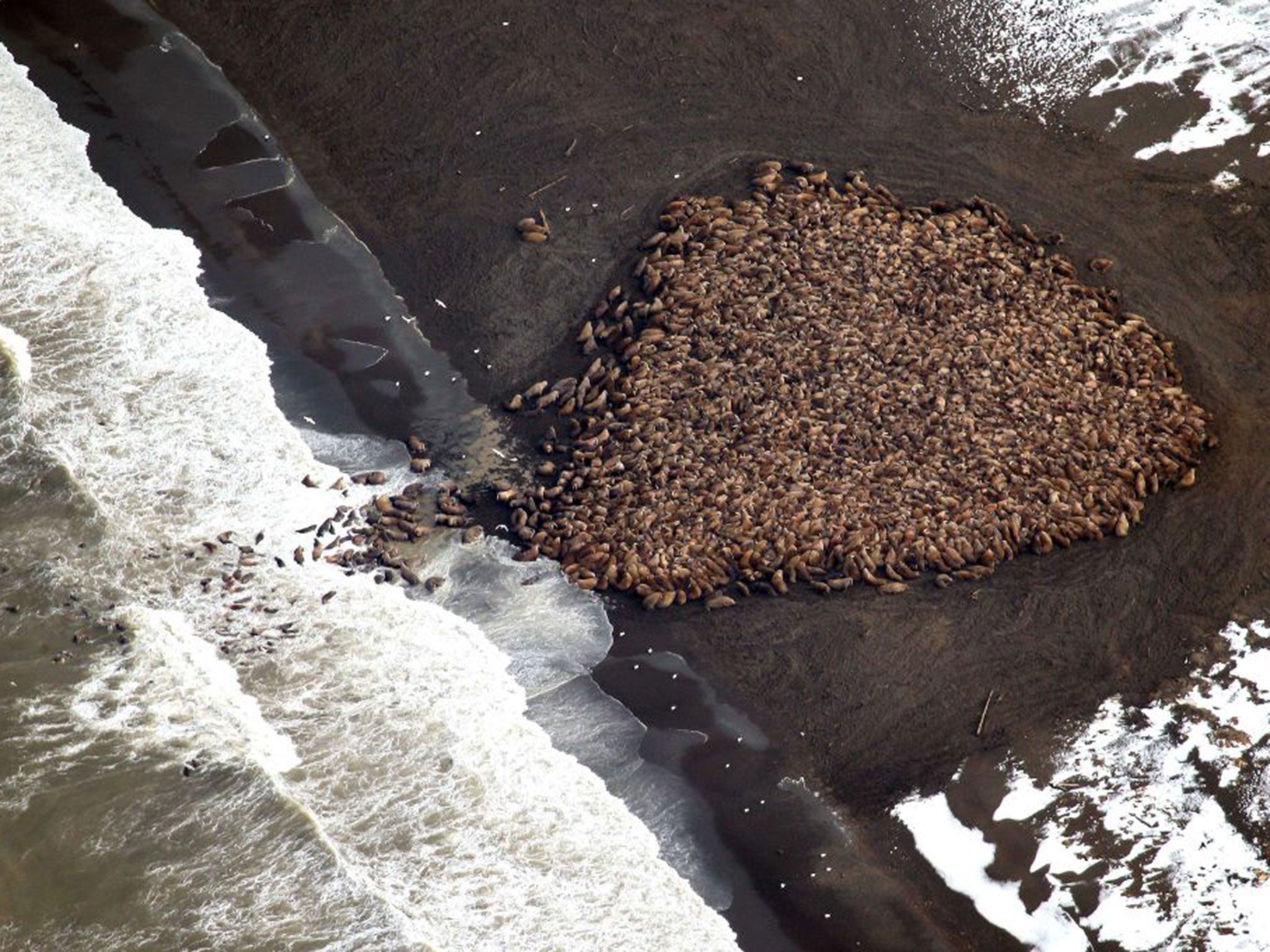35,000 walruses huddle for safety in Alaska as sea ice melts
Ever-larger gatherings mirror the decline of summer sea ice in the Arctic, which is disappearing due to the warming climate

Your support helps us to tell the story
From reproductive rights to climate change to Big Tech, The Independent is on the ground when the story is developing. Whether it's investigating the financials of Elon Musk's pro-Trump PAC or producing our latest documentary, 'The A Word', which shines a light on the American women fighting for reproductive rights, we know how important it is to parse out the facts from the messaging.
At such a critical moment in US history, we need reporters on the ground. Your donation allows us to keep sending journalists to speak to both sides of the story.
The Independent is trusted by Americans across the entire political spectrum. And unlike many other quality news outlets, we choose not to lock Americans out of our reporting and analysis with paywalls. We believe quality journalism should be available to everyone, paid for by those who can afford it.
Your support makes all the difference.This picture taken in north-west Alaska shows a record gathering of 35,000 Pacific walruses coming ashore because they can’t find sea ice to rest on.
Situated five miles north of the Inupiat village of Point Lay, the enormous congregation was spotted at the weekend during the National Oceanic and Atmospheric Administration’s annual marine mammal aerial survey.
These ever-larger gatherings of walruses mirror the decline of summer sea ice in the Arctic, which is being melted by the warming climate.
Pacific walruses spend winters in the Bering Sea. Females give birth on ice, which they use as a diving platform to reach snails, clams and worms on the shallow seabed.
Unlike seals, walruses cannot swim indefinitely and must rest.
Join our commenting forum
Join thought-provoking conversations, follow other Independent readers and see their replies
Comments